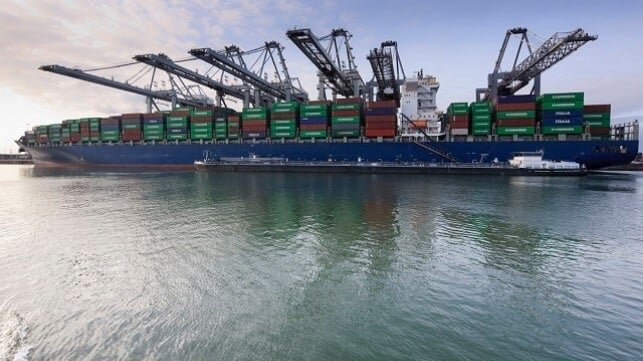Warnings of Recent Spike in Off-Spec Marine Fuels Including VLSFO in Europe

There are renewed quality concerns for the most popular marine fuels, and especially for very low sulfur fuel oil (VLSFO) used by many vessels to meet emission requirements. A range of sediments and impurities raises concerns not only of accelerated wear but also clogs and failures of critical components in the fuel system that can cause unplanned stoppages or blackouts.
“Bunkering with off-spec fuel continues to be a real issue,” says David Fuhlbrügge, Managing Director, CM Technologies, a condition monitoring company. “The transition from traditional fuel oils to VLSFO has created ongoing problems for ship operators, with fuel quality issues becoming a persistent concern across major bunkering hubs since the introduction of the fuel more than ten years ago.”
One market analyst they point out reported in January 2025 that more than 45 percent of the global VLSFO supply does not meet ISO standards. CMT says that independent data in the second quarter showed a further increase, with more than half of all VLSFO samples tested off-spec due to excessive sediment. Issues include poor blending and barge contamination.
Leading independent agencies, Bureau Veritas, VeriFuel, VPS, and FOBAS, have indicated that the problem is especially concerning in Europe. With their reports showing higher than expected levels of catalytic fines, sediments, and or viscosity issues. In Skagen, Norway, for example. 84 percent of samples tested were off-spec, while in Piraeus, Greece, one-in-eight VLSFO deliveries were off-spec. The reports highlight concerns in the busy corridor between Amsterdam, Rotterdam, and Antwerp.
CMT says wax formation when low viscosity VLSFO is stored in temperatures above 21 degrees C is a particular problem.
“VLSFO is a persistent problem for ship managers and charterers,” says Fuhlbrügge. “Operators must know exactly what is going into their tanks. Effective monitoring onboard and at the bunkering port is the only way to protect machinery, safeguard operations, and preserve reliability.”
The company highlights that catalytic fines in particular present an immediate threat to critical components, acting like microscopic sandpaper on injectors and pumps. Sediment, sludge, and wax formation increase the risk of clogged filters and purifiers, while abnormally high viscosity disrupts combustion and raises fuel consumption. Inconsistent fuel quality can rapidly undermine even the most carefully planned maintenance schedules and compromise a vessel’s emissions performance.
CMT warns of the consequences of poor or non-existent monitoring. It says on-site testing capabilities are a critical tool for crews that can assess fuel quality before it enters an engine.
Fuel purity is a consistent concern for ship operators. There have been several cases in Houston that raised concern, and a serious situation in Singapore in 2022. More than 200 vessels were impacted when more than $120 million in fuel was found to have impurities. The following year, another 32 vessels reported problems in an incident that started in Houston and spread to Singapore.
